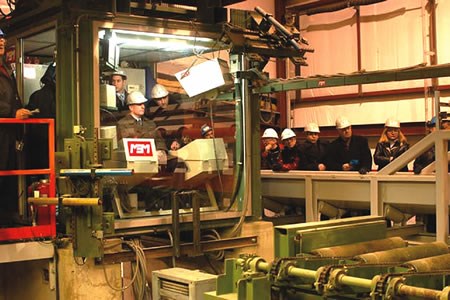An Ontario Court of Appeal is reserving judgement on whether the province's Residual Value Charge (RVC) , a forestry stumpage fee, is a legitimate or an illegal charge on hardwood sawmill companies.
Jim Boniferro, owner of Sault Ste. Marie's Boniferro Mill Works, who successfully challenged the RVC earlier this year in an Ontario Superior Court, came out of a Sept. 2 hearing feeling very confident.
The case was heard by a three-member panel headed by Ontario Chief Justice Warren Winkler. Boniferro says no new evidence was presented by the Crown and he was expecting a ruling within a month or two.
Last December, Boniferro argued in front of Ontario Superior Court Judge Gary Tranmer that the value charge was an illegal tax and was never passed by the Ontario Legislature.
Boniferro also took issue with how the Ministry of Natural Resources determined the calculations since market conditions for hardwood mill operators were poor.
Tranmer sided with Boniferro in ruling the Crown had "no lawful authority to impose" and collect the charge. The Ministry of the Attorney General, acting on behalf of the Ministry of Natural Resources, served notice of their appeal, Feb. 20.
"Our case is pretty unique in its presentation," says Boniferro. "We believe Judge Tranmer got it right the first time and nothing has changed."
Boniferro claims he's owed $1.4 million, with interest, since he acquired his mill from Domtar and re-started it six years ago.
The RVC hasn't been imposed since July 2007, because the market for hardwood saw logs remains soft. Currently, it is only assessed on veneer logs.
Boniferro, who willingly pays all of Ontario's other stumpage fees, says he is aware of 15 other Ontario forestry companies that have also challenged the value charge.
Should the RVC be ruled illegal, the Ontario government would have to give back tens of millions of dollars collected since 1994.
Cash flow problems from soft U.S. markets forced Boniferro to briefly shutdown his 50-employee lumber operation last spring, but the order book is slowly improving thanks to a weakening Canadian dollar.
"It's not because of the market has improved, but because supply was dwindled for our type of product," says Boniferro. "Fewer people are making hardwood lumber."
The sawmill manufactures maple and birch into boards used for hardwood flooring, kitchen cabinets, furniture components, musical instruments, pallets, boxes and recreational floors like basketball courts.




